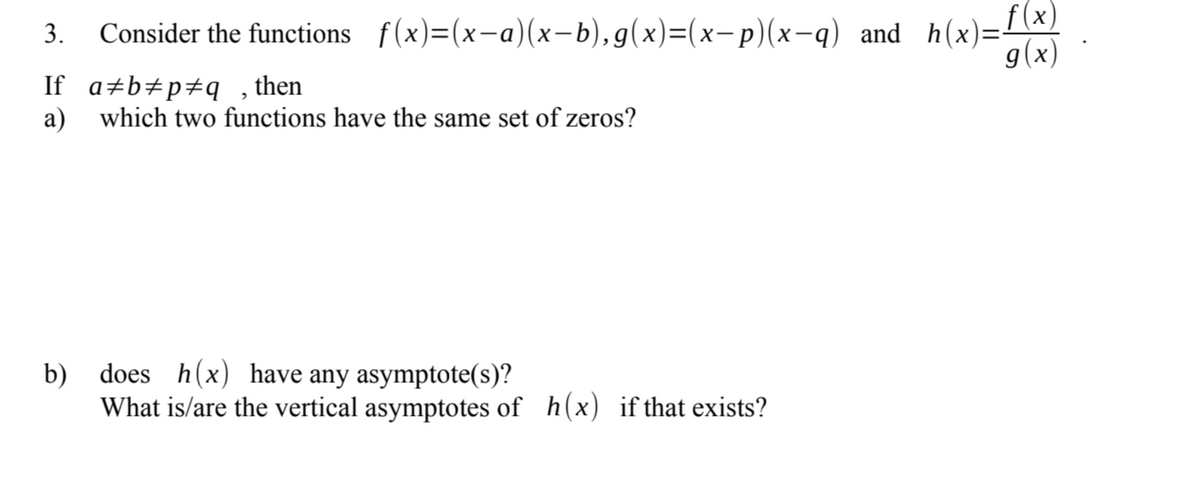3. Consider the functions_f(x)=(x-a)(x−b), g(x)=(x−p)(x−q)_and_h(x)= g(x) If a‡b‡p‡q, then a) which two functions have the same set of zeros? b) does h(x) have any asymptote(s)? What is/are the vertical asymptotes of h(x) if that exists?
3. Consider the functions_f(x)=(x-a)(x−b), g(x)=(x−p)(x−q)_and_h(x)= g(x) If a‡b‡p‡q, then a) which two functions have the same set of zeros? b) does h(x) have any asymptote(s)? What is/are the vertical asymptotes of h(x) if that exists?
Algebra & Trigonometry with Analytic Geometry
13th Edition
ISBN:9781133382119
Author:Swokowski
Publisher:Swokowski
Chapter4: Polynomial And Rational Functions
Section4.5: Rational Functions
Problem 52E
Related questions
Question
100%
Pls help ASAP. Pls do all asked questions I BEG PLS.

Transcribed Image Text:3.
Consider the functions f(x)=(x-a)(x−b),g(x)=(x-p)(x−q) _and_h(x)=f(x)
g(x)
If a‡b‡p‡q, then
a) which two functions have the same set of zeros?
b) does h(x) have any asymptote(s)?
What is/are the vertical asymptotes of h(x) if that exists?
Expert Solution
This question has been solved!
Explore an expertly crafted, step-by-step solution for a thorough understanding of key concepts.
Step by step
Solved in 3 steps with 3 images

Recommended textbooks for you

Algebra & Trigonometry with Analytic Geometry
Algebra
ISBN:
9781133382119
Author:
Swokowski
Publisher:
Cengage


Algebra & Trigonometry with Analytic Geometry
Algebra
ISBN:
9781133382119
Author:
Swokowski
Publisher:
Cengage
